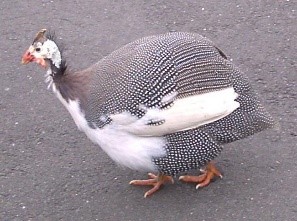- Home >
- College of Agriculture
- > TSU Poultry Program
TSU Poultry Program
Serving Tennessee's Poultry Producers

Introduction
The poultry program at Tennessee State University (TSU) plays significant role in driving the university’s tripartite land grant mission of teaching, research, and extension. The program is supported by three faculty positions and one post-doctoral position in the Department of Agricultural and Environmental Sciences and two faculty positions in the Department of Biological Sciences. These faculty conduct research collaboratively, teach poultry science classes, and mentor undergraduate and graduate student’s research. Therefore, the TSU poultry program caters to the Tennessee poultry industry and beyond.
The poultry industry in Tennessee has an overall annual economic impact of $6.5 billion, provides for over 27,000 direct and indirect jobs, and accounts for over $438 million paid annually in state and federal taxes. Tennessee ranks 14th nationally for broiler production and processes over 6.3 million birds per week at the five processing plants located in Tennessee. Cash receipts for broilers total over $550 million annually. Tennessee is a leading state for primary breeders, having a unique and significant presence represented by the two global leaders in poultry genetics. Aviagen, Cobb-Vantress, and Hubbard (a subsidiary of Aviagen) have major primary breeder operations located in the state. These primary breeder companies produce over 98% of the poultry genetics world-wide. For the past 20 years, Aviagen has partnered and supported poultry research at TSU and donated almost all broiler chickens used for research here at TSU.
Cash receipts for primary breeding stock (parent stock and grandparent stock) contributes another $250 million annually. With combined annual cash receipts of over $800 million, the commercial broiler and breeder industry in Tennessee would therefore rank ahead of cattle and calves. Tennessee has over 1880 commercial broiler and breeder houses located on more than 500 family farms across the state (Tennessee Poultry Association).
Poultry Program Contributions to the Land Grant Mission of Teaching, Research, and Outreach
The poultry program at TSU contributes to the land grant and university’s mission as follows:
1. Support for Tennessee Poultry industry and enhancement of partnerships with the poultry industry.
2. Support backyard and small-scale poultry farmers and producers in Tennessee through appropriate trainings in best management practices
3. Support for the B.S. degree in Agricultural Sciences through teaching of poultry science classes in the Department of Agricultural and Environmental Sciences.
4. Support for B.S., M.S., and Ph.D. degree programs through research and student experiential learning.
5. Support for research addressing key need areas of the poultry industry
6. Serve as demonstration center for the poultry industry and other stakeholders, including elementary and high school students.
Teaching
The poultry program at TSU is an integral part of TSU’s graduate programs in the agricultural and biological sciences. The program provides intellectual expertise and research infrastructure that benefits students in agriculture and biology. One of the primary purposes of the poultry program at TSU is teaching both undergraduate and graduate students and providing hands-on experiential learning to high school, undergraduate, and graduate students. The poultry science courses offered in the program are presented in Table 1. In total, 10 poultry courses are taught in the Department of Agricultural and Environmental Sciences as part the curriculum of the B.S. in Agricultural Sciences, Food and Animal Science/pre-veterinary medicine concentration, the M.S. in Food and Animal Sciences, and the Ph.D. in Agricultural Sciences.
Courses taught in the TSU Poultry Program
AGSC 5170 Advanced Poultry Production and management
AGSC 5350 Independent Study of Contemporary Issues
AGSC 5140 Special problems in Animal Science
AGSC 4420 Poultry Disease Prevention and Sanitation
AGSC 2410 Introduction to Poultry Science
AGSC 5280 Advanced Poultry Nutrition and Biotechnology
AGSC 5120 Thesis Research and Writing
AGSC 5150 Livestock Production and Management
AGSC 3185 Cooperative Education/Internship
AGSC 3480 Poultry Production and Management
Research
Research conducted in the TSU poultry program has direct impact to both the poultry industry (commercial and small-scale) and the food industry. Research outcomes are disseminated through refereed publications in reputable journals as well as reporting through extension materials. Poultry extension faculty and extension agents also disseminate research outcomes through workshops, in-service training, and seminars. The poultry research conducted at the TSU is unique in both the scope and impact it has on the citizens of Tennessee, the nation, and the world. For example, poultry scientists at TSU have generated nutritional resources to minimize costs of guinea fowl production and they continue to evaluate alternatives to antibiotic use in poultry production. Poultry scientists at TSU are also utilizing biotechnological applications to improve efficiency of nutrient utilization and assure the safety of poultry and poultry products regarding potential transmission of disease causing organisms to consumers. One key objective of this research is to minimize the cost of poultry production to make the industry more attractive to investors and to make poultry a more affordable source of protein for the consumer.
Research focus areas
1. Nutritional and genomics strategies for enhancing growth and efficiency of feed utilization in poultry. This research examines optimal nutrient such as amino acid requirements for poultry birds such as the guinea fowl and chickens, and the metabolic pathways associated with uptake of specific nutrients in poultry. The optimal and economical dietary concentrations of the amino acids such as, lysine, methionine, and arginine in broiler chickens and the guinea fowl are also evaluated.
2. Exploring the use of probiotics as alternatives to antibiotics in poultry feeding and production.
3. Evaluating feeding programs and poultry drinking water supplies for improved flock health and productivity
Outreach
The TSU poultry program serves the extension educational programs for Tennessee backyard farmers, small to medium scale producers, and commercial producers. These educational programs are provided via workshops, field days, on farm visits and demonstrations, webinars, and on-site talks. Every year poultry production workshops are conducted through the Tennessee Small Expo and Small Farmers Recognition Program. The poultry program serves Tennessee’s youth through the TSU Extension 4H program, and middle school and high school programs. Over the years the program has also served the College of Agriculture in their recruitment efforts through the Summer Apprenticeship program. TSU Extension poultry publications can be found here.
TSU Poultry Program
Faculty and Staff
Dr. Samuel N. Nahashon, Professor, Ph.D. Poultry Science
Dr. Pramir Maharjan, Assistant Professor and Extension Poultry Specialist, Ph.D. Poultry Science
Dr. Xiaofei Wang, Professor Ph.D. Poultry Genomics and Developmental Biology
Dr. Ann Stewart-Brannon, Ph.D. Biological Sciences
Dr. Thyneice Taylor, Ph.D. Biological Sciences
Industry Partners
Tennessee State University partners with the Tennessee Poultry Association and select industry partners such as Aviagen and Cobb to enhance poultry research, teaching, and student training. The poultry industry has provided monetary support to Tennessee State University to support research and student training; for instance, all birds used for research at Tennessee State University for the last twenty years were donated by Aviagen. The TSU poultry program has also partnered with the Guinea Fowl Breeders Association to enhance guinea fowl production efficiency and profitability. In addition, graduates who trained in poultry science from this program have proceeded to join graduate programs and careers in higher education and the poultry industry.
Impact
Research conducted in the TSU Poultry Program has generated millions of dollars in research funding and disseminated research results through refereed publications in reputable journals. Many of these publications have students as primary authors. Over the last 20 years, the poultry program has trained in research more than 30 high school students, 80 undergraduate students, 30 M.S., and 10 Ph.D. students. The program has also generated more than $4.5 million in research funding and produced 50 refereed publications. Yearly workshops are conducted for stakeholders and extension activities in the state of Tennessee, and we have maintained partnerships with the poultry industry.
The poultry industry has realized benefits from the research conducted in TSU Poultry Program. A greater proportion of guinea fowl and poultry producers are knowledgeable of the energy, protein, calcium, and phosphorus requirements of guinea fowl. These requirements have been communicated through publication, direct contact, and presentations at conferences. Farmers adopting the recommendations have experienced savings in feed cost by replacing expensive turkey rations previously used for guinea fowl with the new rations containing nutrients that are specific to the guinea fowl.
A PDF of this information is located here.


